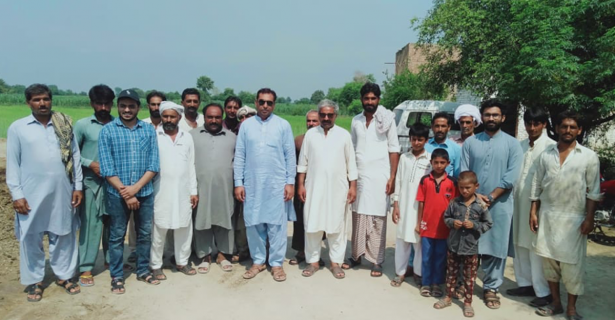This summer, the temperatures were soaring to 35 Degree Celsius, when I, along with my research assistants, ventured into the suburbs of Lahore, Pakistan. The objective was to interview and survey small holder farmers for Kisaan. The term kisaan means farmer in the Urdu language. Kisaan is a proposed microfinance product aimed at incentivizing farmers to buy agricultural inputs such as tractors, solar-powered irrigation pumps etc. Having already worked in the microfinance sector for two years prior to attending The Fletcher School, I was fascinated at how access to financing and the adaptation of finance products can have significant impacts on rural poverty alleviation. What I saw in Pakistan is that, despite having access to financial products, the rural communities were not taking advantage of it, instead deeming it as not Islamic.
In Islamic economic and financial jurisprudence, additional payments above the principal amount are based on a certain set of moral and ethical principles. This is one of the main principles that governs Islamic finance, and which essentially prohibits interest due above the principal of the loan. Thus, it was not a supply problem but rather a demand problem.
The second issue that I noticed during my work was that none of the micro-finance products being supplied were sharing the risk with the borrower. The lender could participate in the upside of the loan investment (via interest payment) but was protected from the downside of the investment (the borrower had to pay at any cost).
Therefore, while at The Fletcher School, with the consultation of Professor Bhaskar Chakravorti, I was able to design a product that included both an Islamic financial principle, as well as a risk-sharing aspect. Having now presented Kisaan and winning several social entrepreneurship competitions, such as the Tufts 100k, I sought out support from the Institute for Global Leadership (IGL) at Tufts University to conduct the feasibility study of Kisaan in Pakistan. It enabled me to prepare surveys, identify potential clients (smallholder) and conduct primary field research in some of the remotest villages in Punjab Province, Pakistan.
Covering a sample of 40 small-holder farmers, the preliminary results from the surveys and interviews suggest that there is an extremely high demand and preference for products like Kisaan. The single product was perceived to overcome economic as well as religious and cultural constraints, paving the way for small-holder farmers so that they do not have to self-exclude themselves from the financial sector.
The findings are highly significant in terms of the role of microfinance in economic development and poverty alleviation in rural communities, especially in Muslim countries such as Pakistan.

